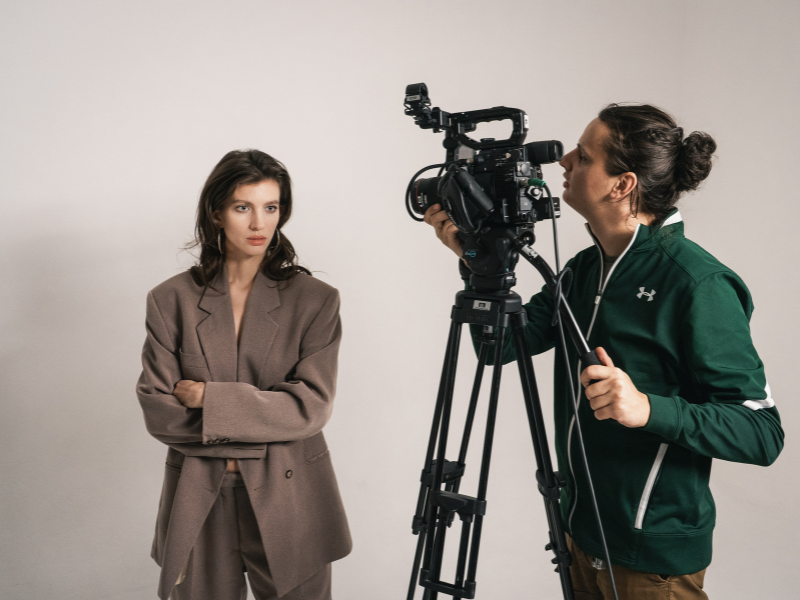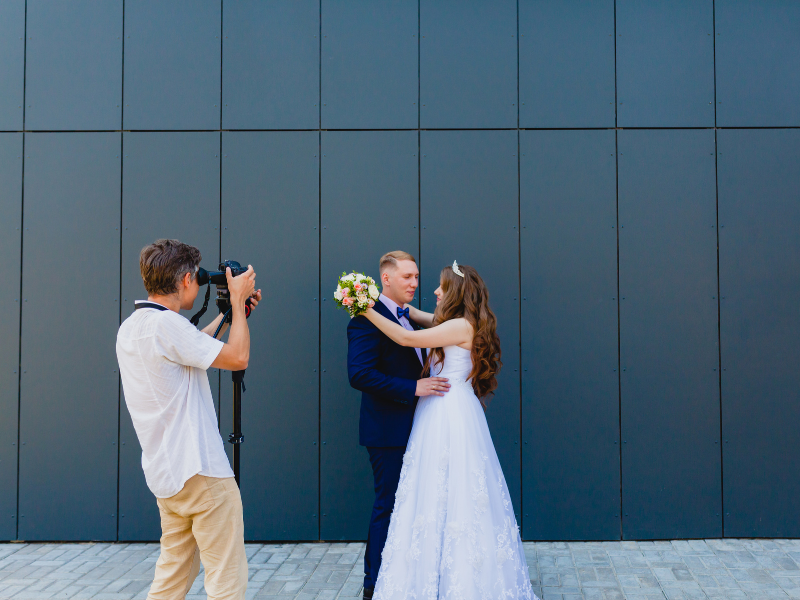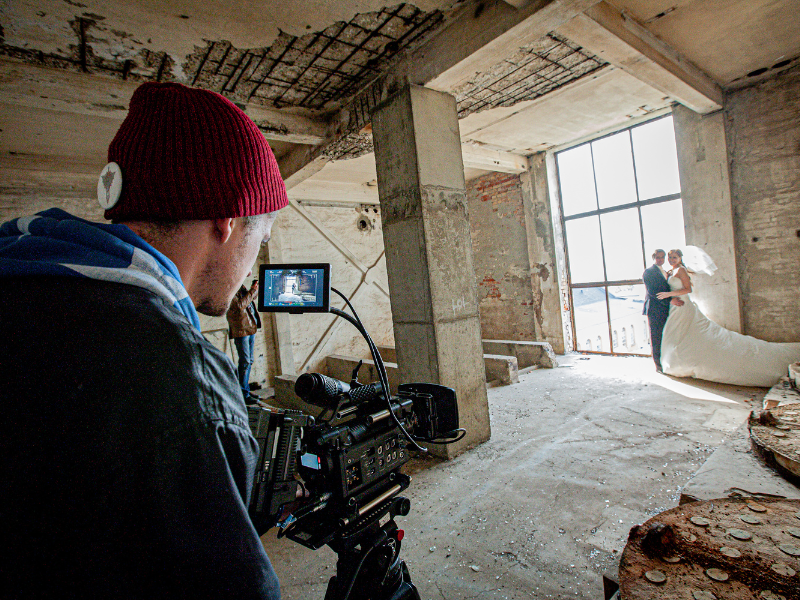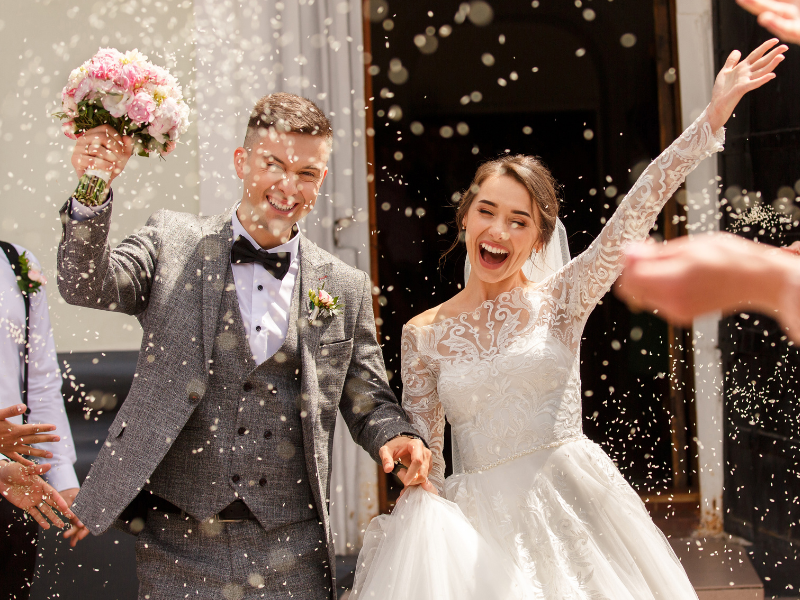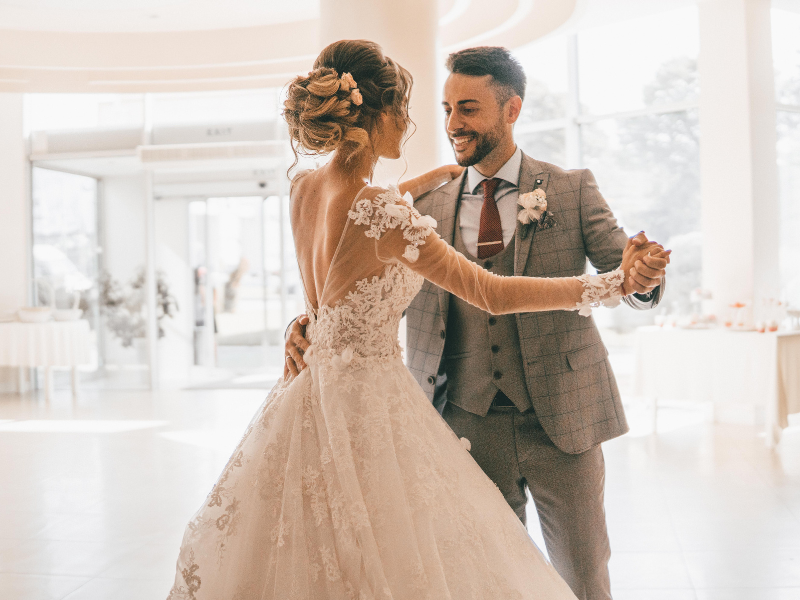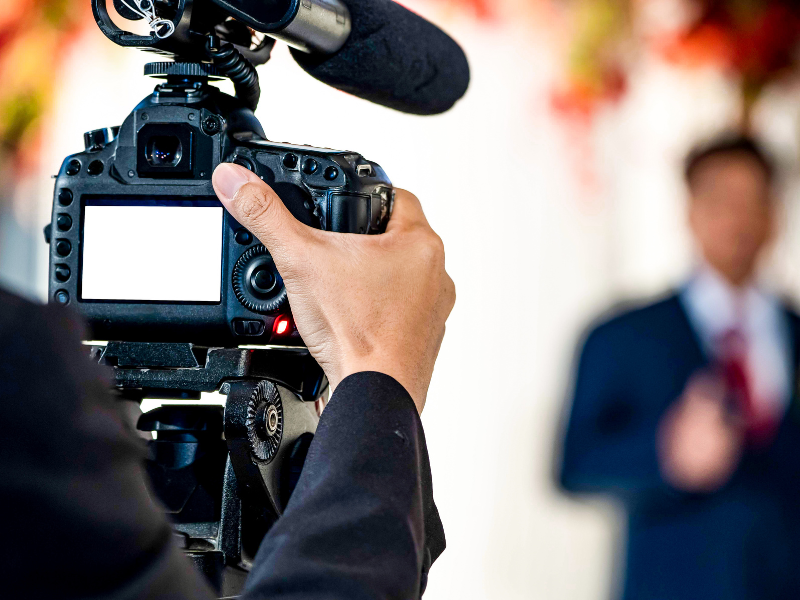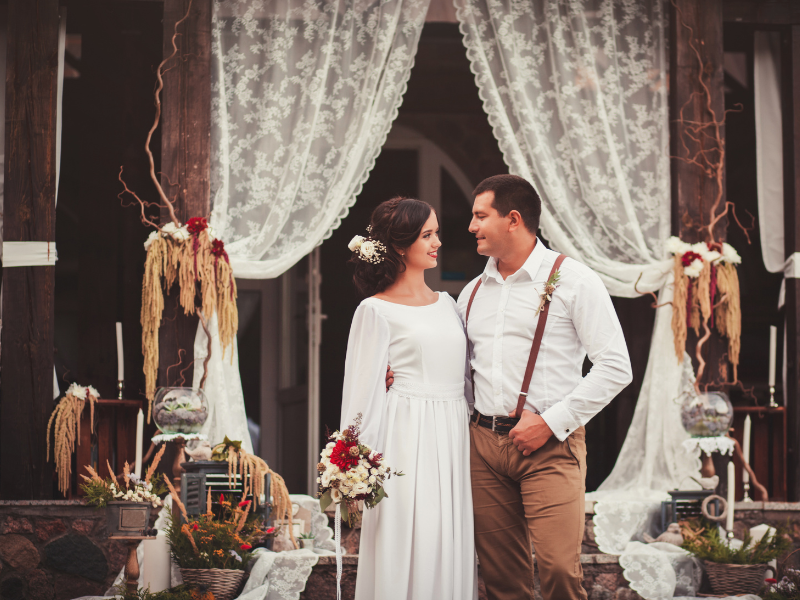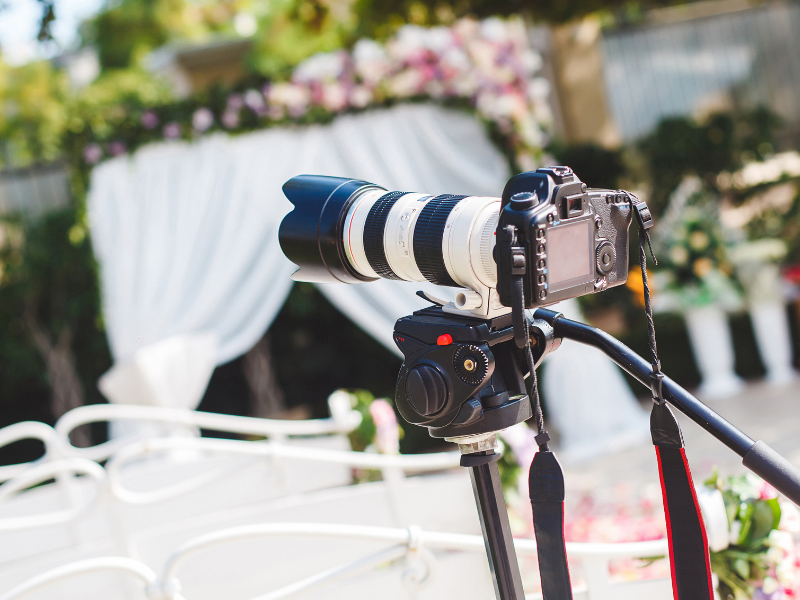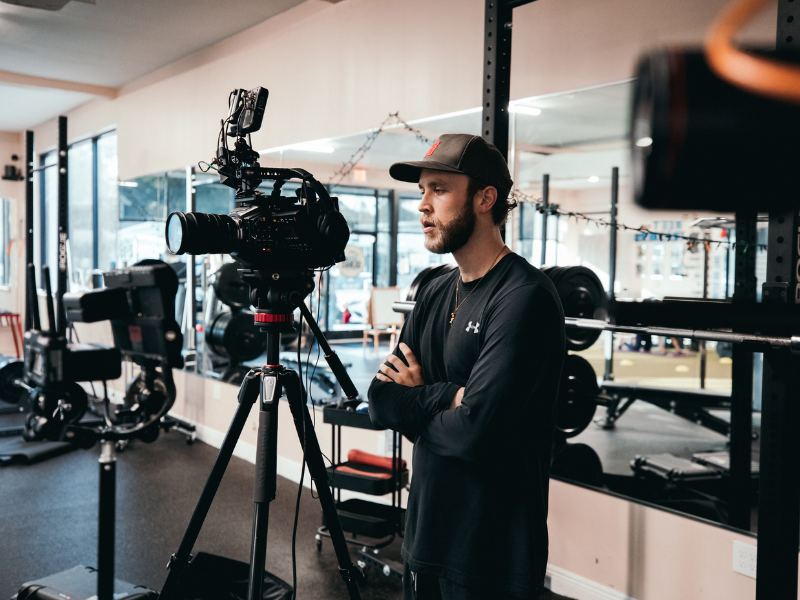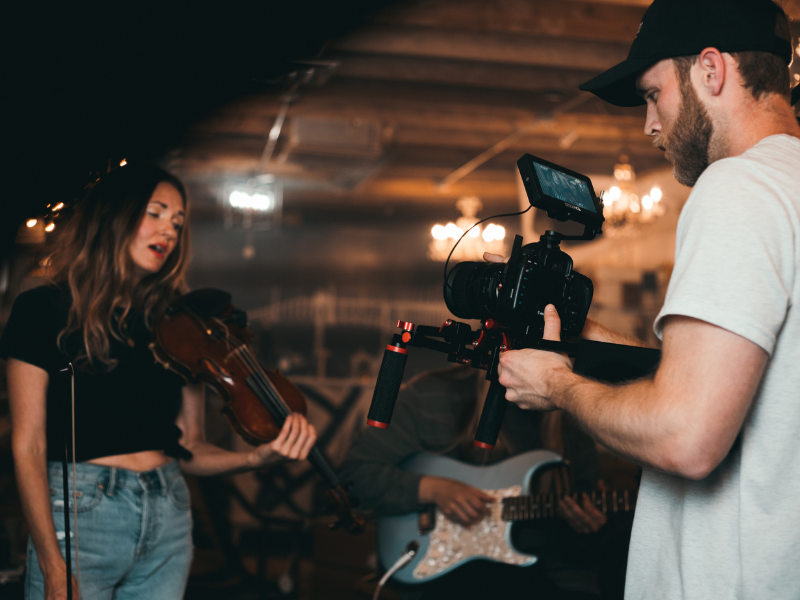Videography has emerged as a highly sought-after skill in a world increasingly drawn to compelling visuals and engaging storytelling. It beautifully intertwines art and technology as a medium, creating endless possibilities to express narratives, share experiences, and capture life’s vibrant ebb and flow. And by learning how to become a videographer, you can create these unique experiences for your very own clients.
Suppose you’ve ever been captivated by a stunning video clip and wondered about the creative talent behind the camera. In that case, this article will teach you how to start a business as a videographer.
The Road to Becoming a Videographer
The journey to becoming a proficient videographer is as dynamic as the visuals you aim to capture. There are many videography business ideas to explore and certain core steps and skills that provide a solid foundation for anyone venturing into this field. These include building technical expertise, understanding editing software, and curating a compelling portfolio.
1. Developing Essential Skills
Starting a videography business requires a blend of technical skills and personal traits. Here are some of the essential skills you need to cultivate:
- Visual Aesthetics: This involves understanding the principles of composition, color theory, and lighting. Having a keen eye for visually pleasing shots is crucial, knowing what will work on camera and how to make adjustments for the best possible outcome.
- Patience: Whether you’re waiting for the right lighting or the perfect moment to capture, patience is a virtue in videography. You must be willing to wait, sometimes for extended periods, to ensure you capture the best shots.
- Perseverance: As with any business, there will be challenges and setbacks. Perseverance is key to overcoming these hurdles and improving and growing your business.
- Storytelling: Good videography is not just about capturing good footage; it’s about telling a compelling story. Understanding how to structure your videos, build tension and emotion, and effectively convey a narrative will make your videos more engaging and impactful.
- Critical Thinking and Problem-Solving: Things don’t always go according to plan when filming. You may have to deal with equipment failures, challenging shooting conditions, or unexpected events. Being able to quickly assess the situation and come up with effective solutions is vital.
- Interpersonal Skills: As a videographer, you will be working with a diverse range of clients, crew, and potentially subjects. Establishing a good rapport with people, communicating effectively, and managing relationships is essential for creating a positive working environment and ensuring client satisfaction.
- Technical Proficiency: This includes understanding how to use your equipment effectively and being up-to-date with the latest videography technology and techniques.
- Business Acumen: As a business owner, you’ll also need to understand the business aspects of videography, such as marketing, client relations, and budget management. This skill can be critical to the success and growth of your business.
- Organizational Skills: Managing schedules, keeping track of equipment, meeting deadlines, and juggling multiple projects at once requires strong organizational skills.
These skills combined can help you create stunning videos and successfully manage your videography business.
2. Acquiring Technical Expertise
Videography is a tech-heavy industry, and becoming adept in using various equipment is critical. This includes mastering the use of different types of cameras and understanding lighting equipment, microphones, and other audio devices.
Technical expertise also extends to knowing how to frame shots, understanding different shooting techniques, and being familiar with various lenses and when to use them. You’ll need to develop a deep understanding of the principles of video composition, including the rule of thirds, depth of field, and color theory.
3. Understanding Editing Software
Post-production is a significant part of videography, transforming your footage into the final product. Editing software like Adobe Premiere Pro, Final Cut Pro, and DaVinci Resolve are industry standards.
Learning to use these tools will enable you to trim footage, adjust lighting and color, add music or effects, and stitch together different clips to create a cohesive narrative. Many videographers also find graphic design and animation skills beneficial in enhancing their videos.
4. Building a Portfolio
Your portfolio is your calling card as a videographer. It showcases your style, skills, and storytelling ability through visual media. Start building your portfolio early, even while you’re learning. It doesn’t have to be perfect initially; the idea is to show your progression and diversity as a videographer.
You might start with simple projects like documenting a day in your life, creating a short film, or even volunteering to shoot events in your community. As your skills grow, so will the complexity and creativity of your projects, gradually filling your portfolio with a range of work that truly represents your unique perspective and technical expertise.
How to Become a Wedding Videographer: Your Essential Guide
Specializing in a specific niche within videography can be fulfilling and profitable. One such area is wedding videography, which allows you to use your skills to capture one of the most important and beautiful days in a couple’s life.
Suppose you’re interested in learning how to become a wedding photographer or videographer. In that case, you need to understand the wedding industry, build strong relationships with vendors, and craft a unique storytelling style that captures the essence of each couple’s love story. Here’s a closer look at these steps:
1. Understanding the Wedding Industry
Weddings are complex events with various traditions, styles, and cultural nuances. An understanding of the wedding industry is essential for a wedding videographer.
You need to familiarize yourself with different types of weddings – traditional, destination, cultural, etc. Knowledge about different ceremonies, rituals, and customs can guide you to anticipate and capture critical moments.
Moreover, staying updated with wedding trends, knowing the peak wedding season, and understanding couples’ expectations can set you apart from others in the industry. This knowledge will also assist in planning your schedule, pricing your services, and marketing your work effectively.
2. Building Relationships with Vendors
Networking plays a critical role in the wedding industry. Building relationships with wedding planners, photographers, caterers, and venue managers can lead to referrals and collaborations.
Start by attending wedding expos, bridal shows, or other industry events. You can connect with vendors online through social platforms, forums, and industry-specific websites.
Remember, the key to a fruitful relationship is mutual support. As you gain more work and visibility, refer your clients to the vendors you trust and who have helped you along the way.
3. Crafting a Storytelling Style
Every couple has a unique story, and as a wedding videographer, your job is to capture and convey that story compellingly and memorably. Developing a distinctive storytelling style requires a deep understanding of narrative techniques, pacing, and tone.
Some videographers prefer a cinematic approach, making the wedding look like a movie, while others opt for a more documentary-style approach, capturing events as they unfold naturally.
Consider taking workshops or courses in storytelling and filmmaking to hone your narrative skills. Remember, the goal is to create a wedding video that documents the day and tells a story that the couple and their families will cherish for years.
Becoming a wedding videographer can be rewarding, allowing you to merge your passion for videography with the joy of capturing lifelong memories. With a solid understanding of the wedding industry, strong relationships with vendors, and a unique storytelling style, you’ll be well on your way to success in this dynamic field.
Acquiring Skills Specific to Wedding Videography
While the general skills of videography apply, wedding videography requires some specific capabilities due to the unique nature of the event. It’s a dynamic, often fast-paced environment where you must capture fleeting moments that cannot be replicated. Here are some unique skills you’ll need to hone for successful wedding videography.
1. Capturing Key Moments
A wedding day is filled with significant moments: the exchange of vows, the first kiss, the first dance, the toasts, and many spontaneous emotional expressions. Missing these moments is not an option.
This requires a technical understanding of your equipment and a keen sense of anticipation and timing. You must be in the right place at the right time, ready to capture these special moments. It also means being prepared for surprises and quickly adapting to the unexpected.
2. Handling Low-Light Situations
Weddings often feature a range of lighting conditions, from broad daylight to dimly lit churches or reception halls. Being proficient in handling low-light situations is crucial. This may involve knowing how to adjust your camera settings on the fly, understanding the use of artificial lighting, and possibly even carrying backup equipment to ensure the quality of your footage is not compromised.
Understanding how to manipulate and enhance the lighting in post-production is essential, as even the best shot footage may need some touch-ups to get the perfect look.
3. Managing Audio in a Dynamic Environment
Good audio quality is vital in wedding videography. You’re not just capturing images; you’re recording vows, speeches, and ambient sounds. However, weddings can present several audio challenges, such as echoes in a church, background noise at an outdoor wedding, or a DJ’s music overpowering the speeches.
Understanding how to use external microphones, lapel mics, and audio recorders is crucial. Similarly, you’ll need to know how to clean up and enhance audio in post-production so that every word in the vows and every note in the couple’s chosen song can be heard.
Developing these unique skills requires practice, experience, and a lot of patience. However, the payoff comes in beautifully crafted wedding films that capture and convey the magic of each couple’s special day.
Building Your Portfolio in Wedding Videography
Creating an impressive portfolio is crucial for a wedding videographer. It’s your visual resume, demonstrating your skills, style, and storytelling abilities to potential clients. Let’s explore how to build a compelling portfolio and secure those all-important initial projects.
1. Prioritizing Quality over Quantity
While it’s essential to show a range of work, the quality of the videos in your portfolio should be your top priority. Prospective clients will assess your skill level based on what they see, so make sure that every video you include showcases your best work.
If you’re starting, even one or two well-crafted videos can be enough to demonstrate your potential. As you gain more experience, continue refining your portfolio, replacing earlier projects with newer, better-quality ones.
2. Showcasing Variety
Demonstrate your versatility by showcasing different types of weddings – traditional, contemporary, destination, intimate ceremonies, and large-scale celebrations. This illustrates your ability to adapt to various environments and meet diverse client needs.
Similarly, your portfolio should highlight different aspects of the wedding day, from the quiet anticipation during the bride’s preparation to the solemnity of the ceremony, the joy of the reception, and everything in between.
3. Crafting a Narrative
Each video in your portfolio should tell a story. Remember, you’re not just recording events but weaving together moments to craft a narrative that resonates emotionally. Show your ability to capture the big moments and the smaller, intimate details that truly reflect the couple’s unique story.
4. Securing Initial Projects
Finding those first few projects to build your portfolio can be challenging when you’re just starting. One way to gain experience is by offering your services to friends or family who are getting married. Alternatively, you could collaborate with a more experienced videographer who needs an assistant, allowing you to learn on the job and gain footage for your portfolio.
Additionally, consider joining related events like engagement parties or bridal showers. This not only expands your portfolio but also helps build relationships with potential future clients.
Becoming a Professional Wedding Videographer: Tips and Insights
Turning your passion for wedding videography into a full-fledged profession requires more than technical skills and creativity. Cultivating strong client relationships, understanding the legal aspects like contracts, and keeping up with industry trends are all vital components of professional success. Here are some essential tips and insights to help you navigate the professional landscape of wedding videography.
1. Cultivating Client Relationships
As a wedding videographer, you’re not just providing a service but an integral part of one of the most critical days in a couple’s life. Hence, building a strong, positive relationship with your clients is crucial.
Start by ensuring clear and open communication from the outset. Understand the couple’s expectations, their unique story, and what aspects of the wedding are most important to them. Be responsive and accessible throughout the process, from the initial consultation to the wedding day and post-production.
Remember, a satisfied client is more likely to recommend you to others, and word-of-mouth can be a powerful tool in expanding your business.
2. Understanding Contracts
Contracts protect both you and your clients by clearly outlining the terms of your services, including pricing, deliverables, timeline, and cancellation policies. They also cover important legal aspects like copyright ownership and privacy rights.
If you’re unsure how to draft a contract, consider consulting with a legal expert specializing in creative or entertainment law. As you gain more experience, you’ll become more familiar with what elements to include and how to adapt contracts for different clients and situations.
3. Keeping Up with Industry Trends
Wedding videography, like any creative field, evolves over time. New trends emerge, technology advances, and client expectations change. Keeping up with these shifts can help you stay competitive and innovative.
This might involve learning new shooting techniques, adapting to new video editing software, or experimenting with different storytelling styles. Participate in industry workshops, attend trade shows, and follow professional videography blogs and forums to stay informed.
4. Investing in Continuous Learning
Even as a professional, there’s always more to learn. Continually honing your skills, both technical and interpersonal, is vital. Take advantage of online courses, tutorials, and mentorship opportunities. Not only does this improve your craft, but it also demonstrates your commitment to professionalism to your clients.
Investing in Quality Equipment for Wedding Videography
As a wedding videographer, your equipment is your toolbox. Your tools’ quality can greatly affect your work’s quality, so investing in the right gear is paramount. Here, we’ll explore the essentials for a wedding videographer’s kit, from cameras and lenses to audio equipment and lighting gear.
1. Cameras
The heart of your setup, the camera, is the most critical equipment. As a wedding videographer, you should invest in a high-quality DSLR or mirrorless camera that allows you to manually adjust settings like shutter speed, aperture, and ISO. This is vital in dealing with weddings’ varied and often unpredictable lighting conditions.
Consider also the camera’s low light performance, battery life, and video resolution. As of my knowledge cutoff in 2021, 4K video is becoming increasingly standard. Also, having at least two of the best digital cameras available to capture different angles simultaneously and have a backup in case of technical issues.
2. Lenses
The lens you use can drastically impact the style and quality of your videos. As a wedding videographer, you’ll need a range of lenses to capture different shots.
A wide-angle lens is essential for capturing large scenes like the ceremony or reception venue. A prime lens with a large aperture (like an 85mm f/1.4) is excellent for low-light situations and capturing intimate moments with a beautiful shallow depth of field. A telephoto lens lets you capture close-ups from a distance, a crucial need when filming ceremonies where you might not be able to get close to the action.
3. Audio Equipment
Good audio is as important as good visuals in wedding videography. Invest in high-quality external microphones to capture clear audio. A shotgun mic can be attached to your camera for ambient sound, while lavalier mics can be clipped to the bride and groom during the ceremony to capture their vows.
An audio recorder can be a helpful backup to ensure you don’t miss any important speeches if there are issues with the direct audio feed. Test all your audio equipment before the big day to ensure everything is working correctly.
4. Lighting Gear
Even with a camera and lens that perform well in low light, you may find yourself in situations where additional lighting is necessary. A simple on-camera LED light can provide a fill light during dark receptions. For more control, off-camera lights, reflectors, and diffusers can help create the desired lighting setup.
Remember, good lighting equipment does not mean overly bright or harsh lights. The aim is to enhance the natural light and ambiance to capture the scene as authentically as possible.
Investing in quality equipment is a significant step in developing your wedding videographer career. While this might require a substantial upfront investment, having reliable, high-quality gear improves the quality of your work and provides peace of mind knowing you’re well-prepared to capture the magic of a wedding day.
Remember that equipment is just a tool; the most crucial aspect of wedding videography is how you use these tools to tell the couple’s story. So, invest wisely, learn your gear inside out, and keep honing your craft. Your passion, creativity, technical skills, and the right tools will help you produce stunning wedding films that will be cherished for a lifetime.
| Types of Equipment Needed to Start a Videography Business |
|---|
| 1. Cameras: Invest in a high-quality DSLR or mirrorless camera with manual settings and good low-light performance. Consider video resolution (4K is becoming increasingly standard) and battery life. Have at least two cameras for different angles and backup. |
| 2. Lenses: Obtain a range of lenses for different shots. Wide-angle for large scenes, prime lens for low-light situations and intimate moments, telephoto lens for close-ups from a distance. |
| 3. Audio Equipment: Invest in high-quality external microphones, including a shotgun mic for ambient sound and lavalier mics for the bride and groom’s vows. Consider an audio recorder as a backup. |
| 4. Lighting Gear: Acquire on-camera LED light for fill light in dark situations and off-camera lights, reflectors, and diffusers for more control. The aim is to enhance natural light and ambiance. |
| Remember, the equipment is just a tool; your creativity, technical skills, and the right equipment will produce stunning wedding films. |
How Much Do Wedding Videographers Make? Understanding the Market
Wedding videography can be profitable, but understanding the market is key to maximizing your income. The potential earnings for a professional videographer, such as a wedding videographer, can vary significantly based on various factors, from geographical location and experience to the complexity of the shoot. Let’s dive into the financial landscape of the wedding videography industry.
1. Average Rates
The average wedding videographer charges anywhere between $1,200 and $5,000 per event in the United States. However, these figures can vary widely depending on the location, wedding length, the shoot’s complexity, and the specific services provided. For example, offering drone footage or same-day edits can command higher rates.
In major cities or more affluent areas, rates can go much higher. Top-end wedding videographers in high demand due to their unique style or reputation can charge significantly more, sometimes in the range of $10,000 to $15,000 per wedding or even higher.
2. Factors Influencing Earnings
Several factors can influence a wedding videographer’s earnings:
- Experience and Skill Level: As you gain more experience and hone your skills, you can charge more for your services. A strong portfolio showcasing your unique style and storytelling abilities can also command higher rates.
- Geographical Location: Rates often vary by region, with higher prices in larger cities and more affluent areas.
- Services Offered: Additional services like drone footage, extra shooters, full-day coverage, or expedited editing can increase your income. Creating different packages allows clients to choose what suits their needs and budget, potentially adding to your earnings.
3. Strategies for Increasing Income
If you’re looking to increase your income as a wedding videographer, consider these strategies:
- Improve Your Skills: Investing in your education and skills can allow you to charge more for your services. This could mean attending workshops, obtaining certifications, or mastering new techniques or technologies to improve your wedding film output.
- Expand Your Offerings: Adding extra services like pre-wedding shoots, engagement videos, or additional edits can attract more clients and increase your earnings per wedding.
- Network with Wedding Professionals: Building relationships with other wedding industry professionals, like planners, photographers, or venue managers, can lead to referrals and more bookings.
- Effective Marketing: A professional website showcasing your portfolio, client testimonials, and clear pricing packages can attract potential clients. Social media marketing, SEO, and paid advertising can help you reach a wider audience.
Pricing Strategies for Wedding Videography
Pricing is a crucial element in your wedding videography business. It not only reflects the value you bring to your clients but also plays a fundamental role in the profitability and sustainability of your business.
1. Package Pricing
Many wedding videographers offer packages which can simplify the pricing process for both you and your clients. Packages might include a set number of hours, a specific number of edited videos (like a highlight reel and a full-length film), and other services.
Creating tiered packages can cater to different budgets and needs. For instance, a basic package could include the ceremony and reception coverage, while premium packages could offer features like drone footage, extra shooting hours, or a same-day edit.
Ensure your packages are clear and easy to understand, with a detailed breakdown of what each package includes.
2. Travel Fees
Travel costs should be considered in your pricing. If the wedding location is beyond a certain distance from your base of operations, you might charge a travel fee. This fee could be a flat rate or be based on mileage. If an overnight stay is required, consider this in your pricing or specify in your contract that accommodation must be provided or paid for by the client.
3. Editing Time
Remember, as a videographer, your job doesn’t end after the wedding day. Editing is a time-intensive process and should be factored into your pricing. Keep track of how much time you spend editing to ensure you’re pricing your services accurately.
4. Extras
Offering additional services or extras can be a great way to increase your income. This could include raw footage, extra copies of the videos, engagement shoots, rehearsal dinner coverage, or a trailer video.
5. Consider Your Costs and Desired Income
When setting your prices, it’s crucial to consider all your costs, including equipment, insurance, software, marketing, and any staff you hire. You should also account for your desired income and the time you can dedicate to each wedding, considering both the event day and editing time.
6. Market Research
Understanding what other wedding videographers in your area charge can help you set competitive rates. This doesn’t mean you should underprice your services, but it can provide a benchmark to ensure your prices align with the market.
Remember, pricing is an ongoing process. As you gain more experience, improve your skills, and invest in better equipment, you should revisit your prices to ensure they reflect the real value you provide. Your clients are not just paying for a video; they’re paying for your unique vision and expertise that allows them to relive their special day for years.
Launching a Wedding Videography Business: Steps and Considerations
Starting a wedding videography business can be both exciting and daunting. Let’s cover the main steps and considerations in launching your own business in this creative field.
Business Planning
Before anything else, it’s crucial to create a business plan. This document outlines your business’s objectives, target market, and strategies for reaching potential clients. It’s an essential road map for your business and can help attract potential investors or lenders.
Budgeting & Financing Your Own Business
Consider the startup costs, including equipment, software, marketing, and insurance. Create a budget and decide how you’ll finance your business. This might include personal savings, a bank loan, or investment from others. Monitor your expenses and income to ensure you’re maintaining a profitable operation.
Business Registration
Register your business with the appropriate government agencies. The process varies by location, so check the requirements in your area. Choose a business structure (such as sole proprietorship, partnership, or LLC), register your business name, and obtain any necessary licenses or permits.
Tax Considerations
As a business owner, you’ll have new tax obligations. Consult with a tax professional or accountant to understand what taxes you’re responsible for, such as income tax, sales tax, and self-employment tax. Keep thorough records of all your business transactions for tax purposes.
Business Insurance
Insurance is critical in protecting your business from potential risks, such as equipment damage or liability issues. Look into options for business insurance, including general liability insurance, professional liability insurance, and property insurance.
Purchase Equipment
Invest in high-quality equipment that allows you to deliver a professional product. Consider getting a high quality video camera, lenses, audio equipment, and lighting, as well as editing software. Keep in mind that this is a significant upfront investment but is essential to your operation.
Branding
Create a brand that reflects your style and appeals to your target market. This includes your business name, logo, color scheme, and overall aesthetic. Your brand should be consistent across all platforms, from your website to your social media profiles and marketing materials.
Website & Portfolio
Your website is your online storefront. Make it professional, user-friendly, and reflective of your brand. An essential part of your website is your portfolio, showcasing your best work, including examples of wedding videos or a wedding shoot you’ve done to show potential clients. Highlight different types of weddings to show your versatility.
Marketing Strategy
Develop a marketing strategy to reach your target audience. This could include search engine optimization (SEO) to make your website more visible in online searches, social media marketing, paid advertising, and networking with other wedding professionals for referrals.
Customer Service Strategy
Providing excellent customer service is key to building a good reputation and gaining repeat business and referrals. Develop a strategy for communicating with clients, meeting their needs, and exceeding their expectations.
Contract Development
Create a contract that clearly outlines your services, pricing, and policies. This protects both you and your clients and helps prevent potential misunderstandings. Consider consulting with a lawyer to ensure your contract covers all necessary areas.
Continued Education and Training
Stay updated with the latest trends and technology in wedding videography. This might include attending workshops, online courses, and industry events. Continually improving your skills and knowledge can give you an edge in a competitive market.
| Steps and Considerations for Starting a Videography Business |
|---|
| 1. Business Planning: Create a business plan outlining your objectives, target market, and strategies for reaching potential clients. |
| 2. Budgeting & Financing: Assess startup costs, including equipment, software, marketing, and insurance. Decide on a financing method, create a budget, and monitor income/expenses. |
| 3. Business Registration: Register your business with appropriate government agencies, choose a business structure, register your business name, and obtain necessary licenses or permits. |
| 4. Tax Considerations: Consult with a tax professional to understand your tax obligations. Keep thorough records of business transactions. |
| 5. Business Insurance: Investigate insurance options to protect your business from risks like equipment damage or liability issues. |
| 6. Purchase Equipment: Invest in high-quality videography equipment and editing software. |
| 7. Branding: Develop a brand that reflects your style and appeals to your target market. Maintain consistency across all platforms. |
| 8. Website & Portfolio: Create a professional and user-friendly website that showcases your portfolio of work. |
| 9. Marketing Strategy: Implement a strategy to reach your target audience. This could involve SEO, social media marketing, paid advertising, and networking. |
| 10. Customer Service Strategy: Develop a strategy for effective communication and exceeding client expectations. |
| 11. Contract Development: Create a comprehensive contract outlining your services, pricing, and policies. |
| 12. Continued Education and Training: Stay updated with latest trends and technologies by attending workshops, online courses, and industry events. |
FAQs: How to Become a Videographer
Can I be a videographer without a degree?
Yes, you can become a videographer without a degree or film school experience. While formal education in fields like film or digital media can provide valuable skills, many videographers are self-taught or learn through online courses, workshops, and hands-on experience. The key is to master the technical skills, develop a creative eye, and build a strong portfolio showcasing your work.
Do videographers make good money?
The income of videographers can vary greatly based on factors such as their geographical location, level of experience, niche, and the specific services they offer. However, wedding videographers often charge per event, and high-demand videographers can earn several thousand dollars per wedding.
How hard is it to become a videographer?
Becoming a videographer can be challenging, as there is a lengthy business startup checklist to complete before showcasing your skills. It requires mastering technical skills, developing an artistic eye, and learning how to run a business if you’re freelancing. However, with dedication, passion, and continual learning, you can overcome these challenges and succeed in the field.
How long does it take to become a wedding videographer?
The timeline can vary widely based on your starting point and how much time you can devote to learning and practicing your skills. If you’re starting from scratch, it might take a few years to learn the necessary skills and gain enough experience to start taking on wedding assignments. However, if you’re already a skilled videographer, you could transition into wedding videography more quickly by learning about the specific needs and dynamics of wedding events.
How can I increase my income as a wedding videographer?
There are several strategies to increase your income as a wedding videographer. These include improving your skills to command higher rates, offering additional services or extras, creating tiered packages to cater to different budgets, and effectively marketing your services to reach more potential clients. Building strong relationships with clients and other wedding industry professionals can also lead to more bookings and referrals. You may even consider offering additional services to your clients. For example, a wedding videographer could learn how to start a photo booth business, which can be largely set up before each event.
Image: Envato Elements








